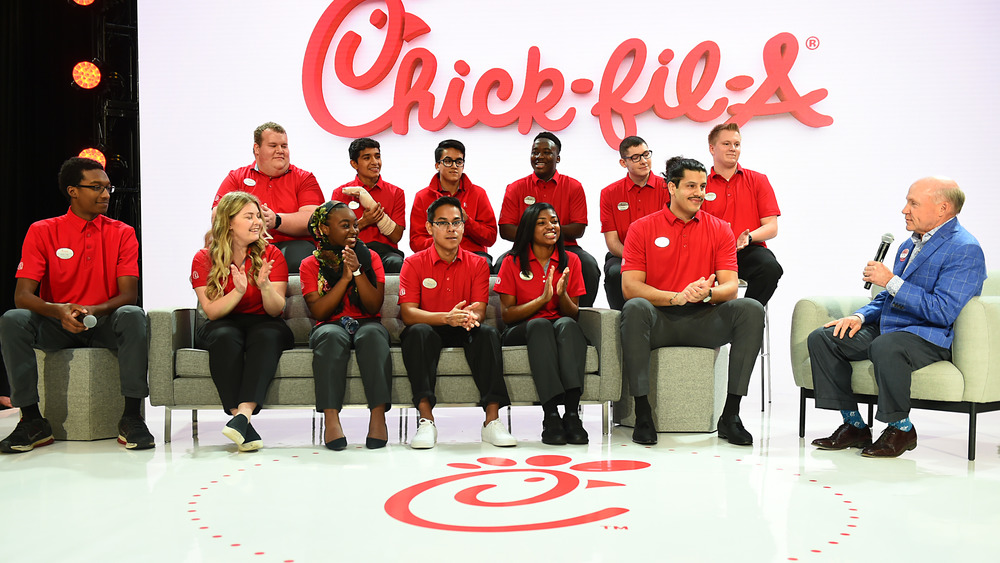The Secret Language Of Chick-Fil-A Employees
Those who consider themselves to be part of Chick-fil-A's cult following have undoubtedly noticed the particular language the employees use. Most obvious of all is the phrase, "my pleasure," which is relentlessly used in response to customers thanking the employees. The chosen response is anything but random, which might be clearer today than ever.
According to Chick-fil-A Podcast, the saying was first picked up by Truett Cathy, Chick-fil-A's founder, from a Ritz-Carlton hotel employee who said it when Cathy thanked him. After the encounter, Cathy instructed that the sole phrase would be substituted for any other way of saying, "you're welcome" at Chick-fil-A locations. Not to mention, he wanted the employees to only use the new phrase with eye contact to create a stronger bond with the customer.
Dan Cathy, Truett's son, came to find that the phrase could be more than a whim of a change. "It dawned on me that this could be a service signature for us, almost like two pickles on a sandwich." With both Cathys approval, the change slowly took place across all Chick-fil-A locations and the friendly behavior has become a clear point for customer satisfaction (via Lemonade Stand).
Other choice words Chick-fil-A uses
"My pleasure" is far from the only important word choice the chain has made, though. Just as the phrase seems to elevate the exchange of "thank you" and "you're welcome," Chick-fil-A has found the same to be true for more select words. According to in Lemonade Stand, Maisie Bolton, a former assistant manager for catering at Chick-fil-A, described these words and phrases that are swapped out as a "small and simple secret" the chain uses. Not only do these set the fast-casual chain apart from competitors, they also help improve customer interactions.
One example of upgraded language is using the word "beverage" for drink, according to Lemonade Stand. Another is "may I clear your table" instead of the employee asking to throw away your empty French fry carton. Customers are not customers, but "guests" rather. Finally, you'll never hear Chick-fil-A employees refer to one another as employees. Instead, they are "team members."
Bolton describes these changes as being important because they are "thoughtful" and "meaningful." She goes on to say, "they are never mundane or passive in their word and deed, they literally breath cheery and happy mannerisms." So, the next time you visit Chick-fil-A, you'll likely notice these language choices and appreciate them more for what they are.

